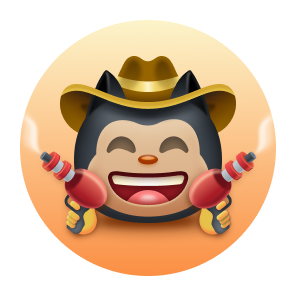I’m a technical design generalist with a strategic and systems thinking mindset, bridging the gap between product, design, and engineering.
I’ve built successful digital products and scaled user interface design and development in large organisations. I’ve defined, built, and evolved design systems, tools, and processes.
I understand common user behaviours, and can provide evidence-based design guidance by assessing and validating specific design concepts and solutions with end-users, peers, and client stakeholders.
I’m happy to jump in feet-first, trialling new ideas and approaches with a growth mindset. If I don’t get things right the first time, I’m resilient and progressive about learning and adapting for the next time around. I can manage my own time and am flexible; I recognise that each project is different and unique in its own right.
I insist on a deeper understanding of the problem before rushing into solutions, even if that sometimes means starting out with ‘just enough’. I focus on the needs of the people using the products and services I'm developing or prototyping, but am also able to understand the complexity involved in balancing them with the client’s organisational goals or technical constraints.
I understand the benefits of making complex ideas simple through diagrams, concept maps, sketches or other visual thinking techniques. I enjoy working through ideas with clients and colleagues, but I'm also hands-on enough to help bring those ideas into reality.
I understand that success can often rest on the quality of communication. I prefer discussion over email. I pride myself on expressing my ideas clearly and with a strong sense of purpose that encourages trust from my colleagues and clients, whether that’s a conversation around a whiteboard, an innovative prototype, or selecting the right framework for a project.
I do my best work collaborating within cross–functional teams and know that shared understanding is the critical factor in achieving a successful outcome. I instinctively share my ideas with colleagues and peers, and love to see them adapt and evolve as a result of constructive criticism.
I know the best way to tackle complex problems is by remaining adaptable. I understand and respect the differences between the various research, design or development methodologies while not following any practice dogmatically. I have an array of techniques to draw upon, but focus on the outcomes of my work, rather than fetishise the way it looks or how it’s delivered.
- Learn from failure - encourage failure, embrace setbacks, and allow mistakes. Learn, iterate, and grow from them.
- Embrace diversity - encourage every member of the team to express themselves freely in a safe and supportive environment, allowing everyone to bring their own unique backgrounds and experiences with them.
- Design for trust - an individuals’ security and privacy on the internet are fundamental and must not be treated as optional. (Mozilla)
- Design for everyone - accessibility affects everyone; build it into every decision.
- Design is a series of intentional decisions - every project is shaped by a series of decisions, whether those decisions are about meeting agendas, research plans, or what constitutes a minimum-viable product. Taking a design approach means identifying opportunities for decision-making, and being intentional about making decisions.
- Design depends on context - what’s the right approach? It depends. We use design research to better understand the problems we might solve, and the systems those problems connect to. We actively validate the success of our solutions through design research.
- User-centered design is for people - we proactively engage with users to understand their needs and determine how well our decisions have met those needs.
- Design is never done - we don’t have all the answers. And that’s okay. We take an iterative, cyclical, lean approach. We try things out. We commit to continuous improvement using critiques, wireframes, prototypes, usability tests, etc.
- Figma
- Firefox
- Github
- Miro
- Airtable
- Notion
- IntelliJ IDEA
- Visual Studio Code
- Pencil and Paper


